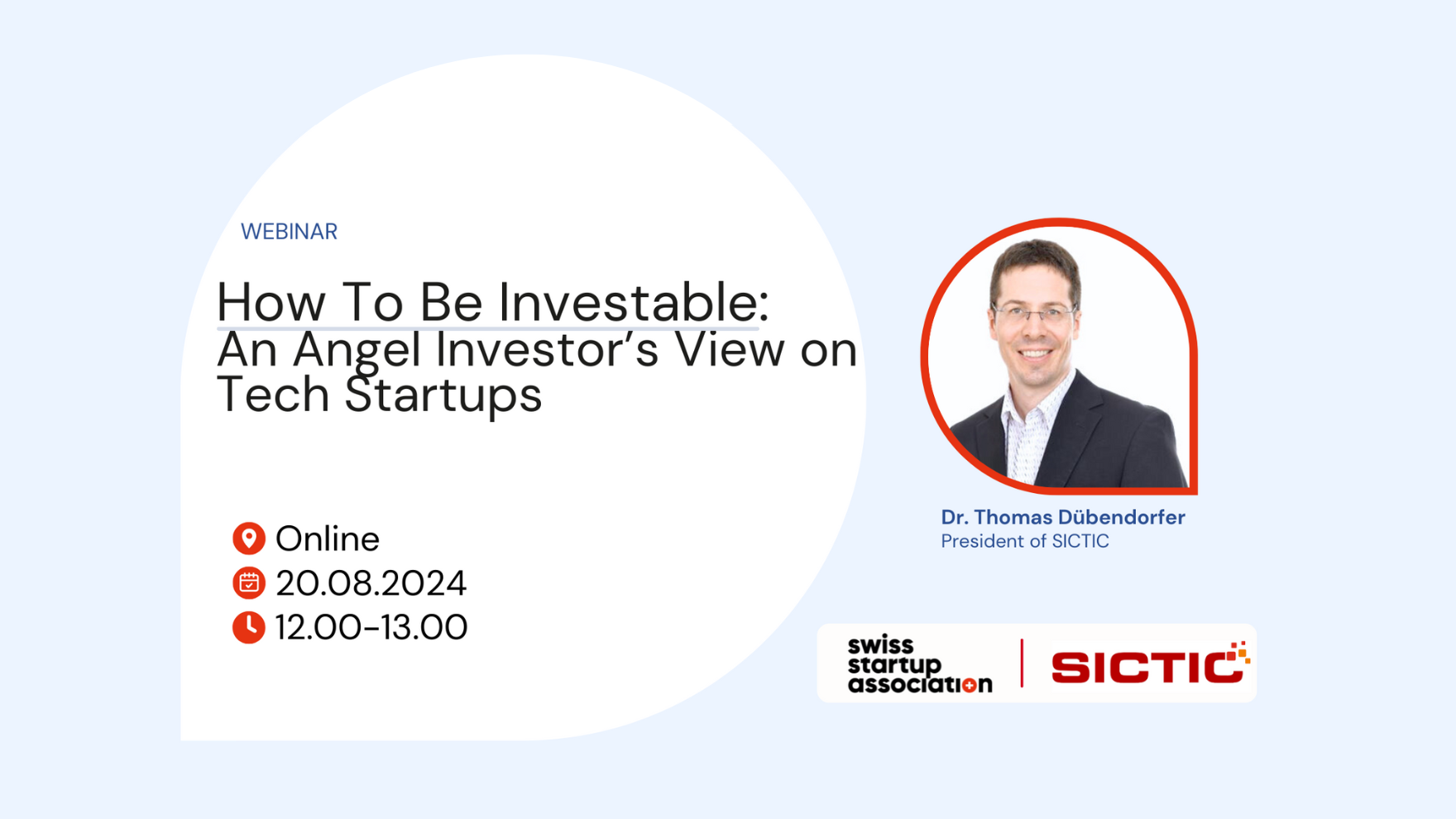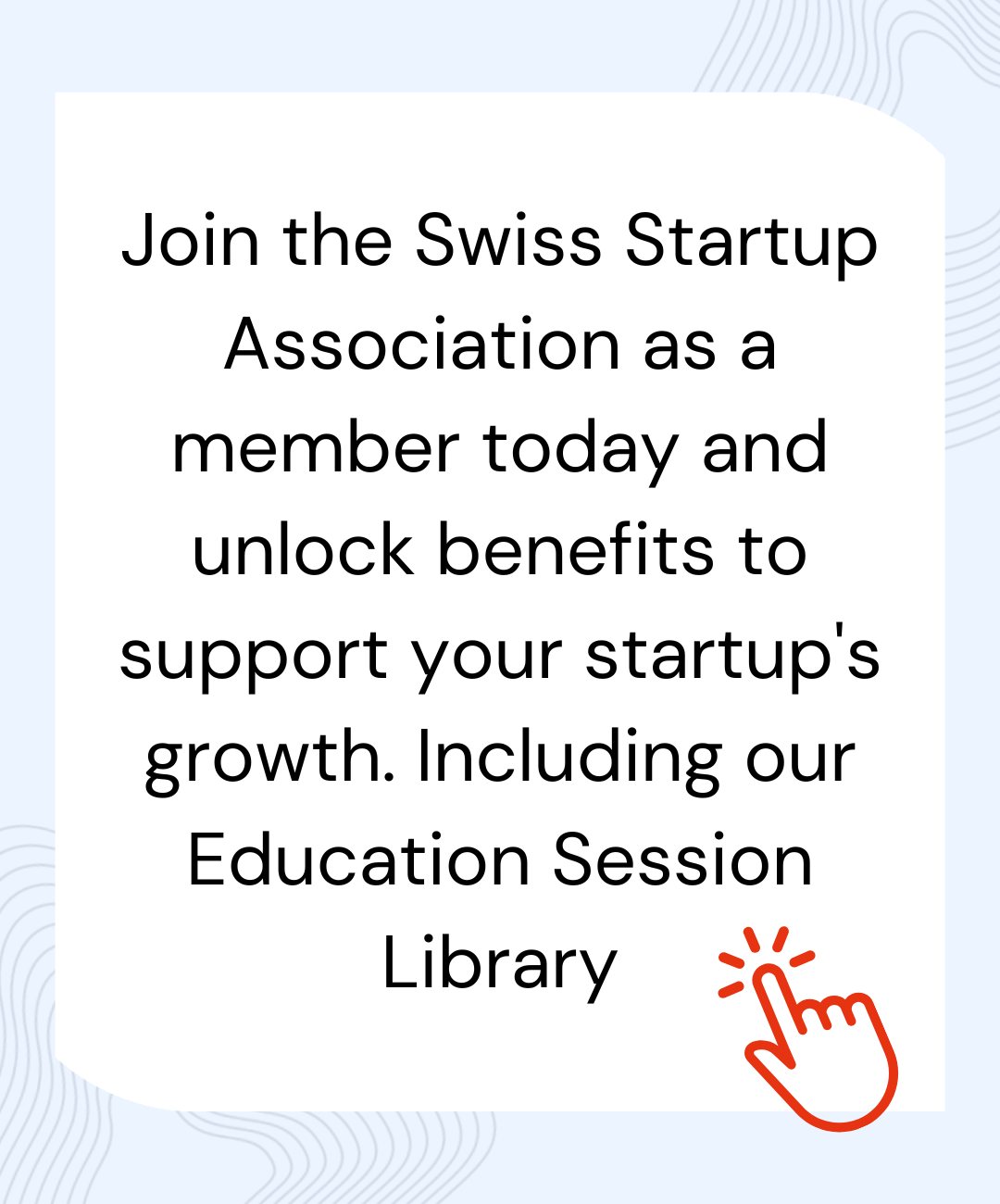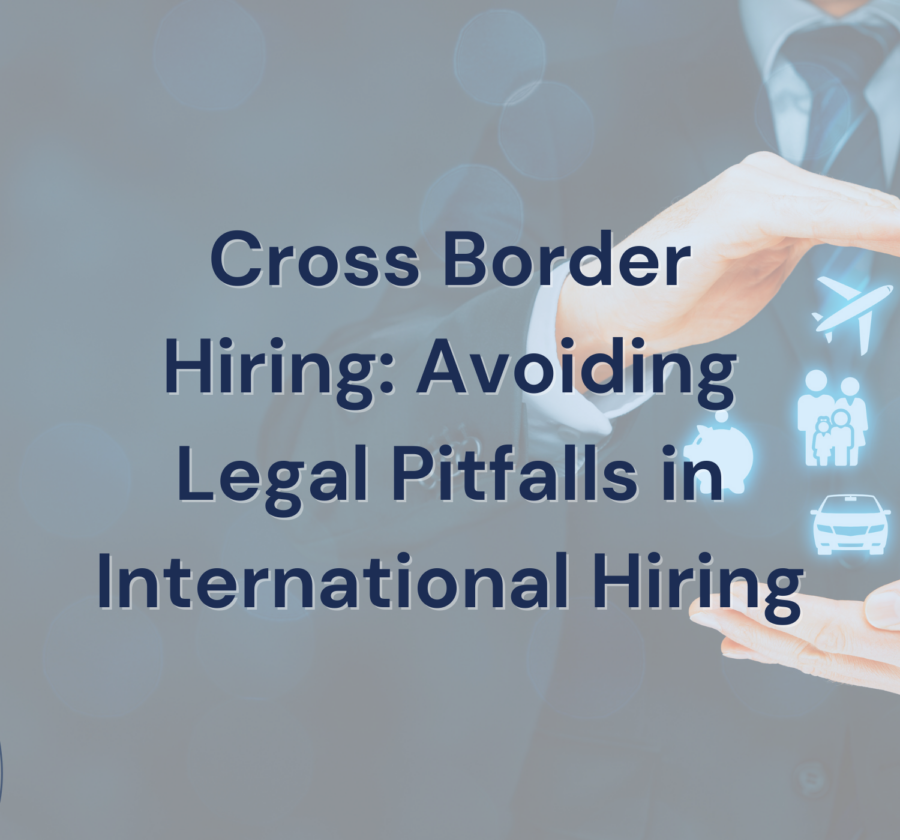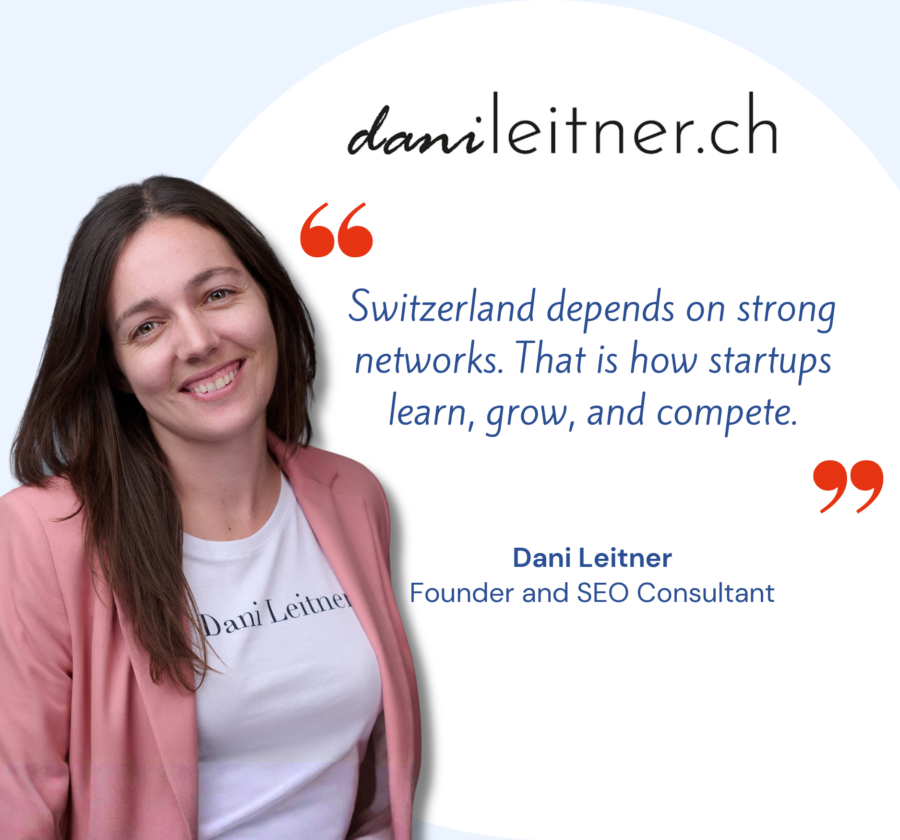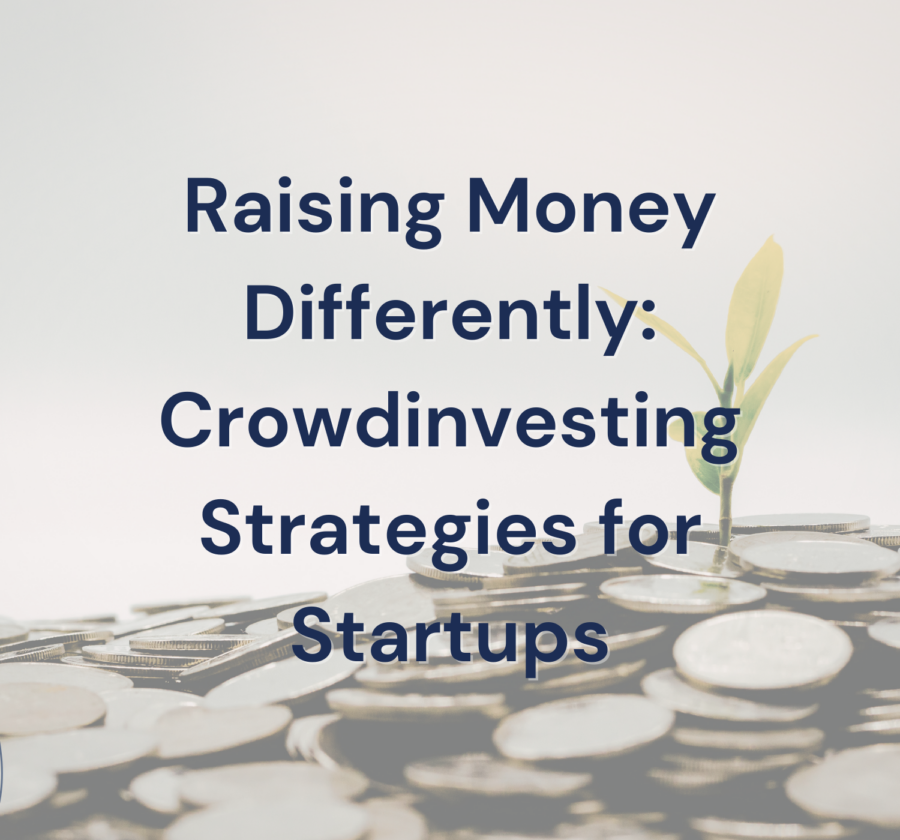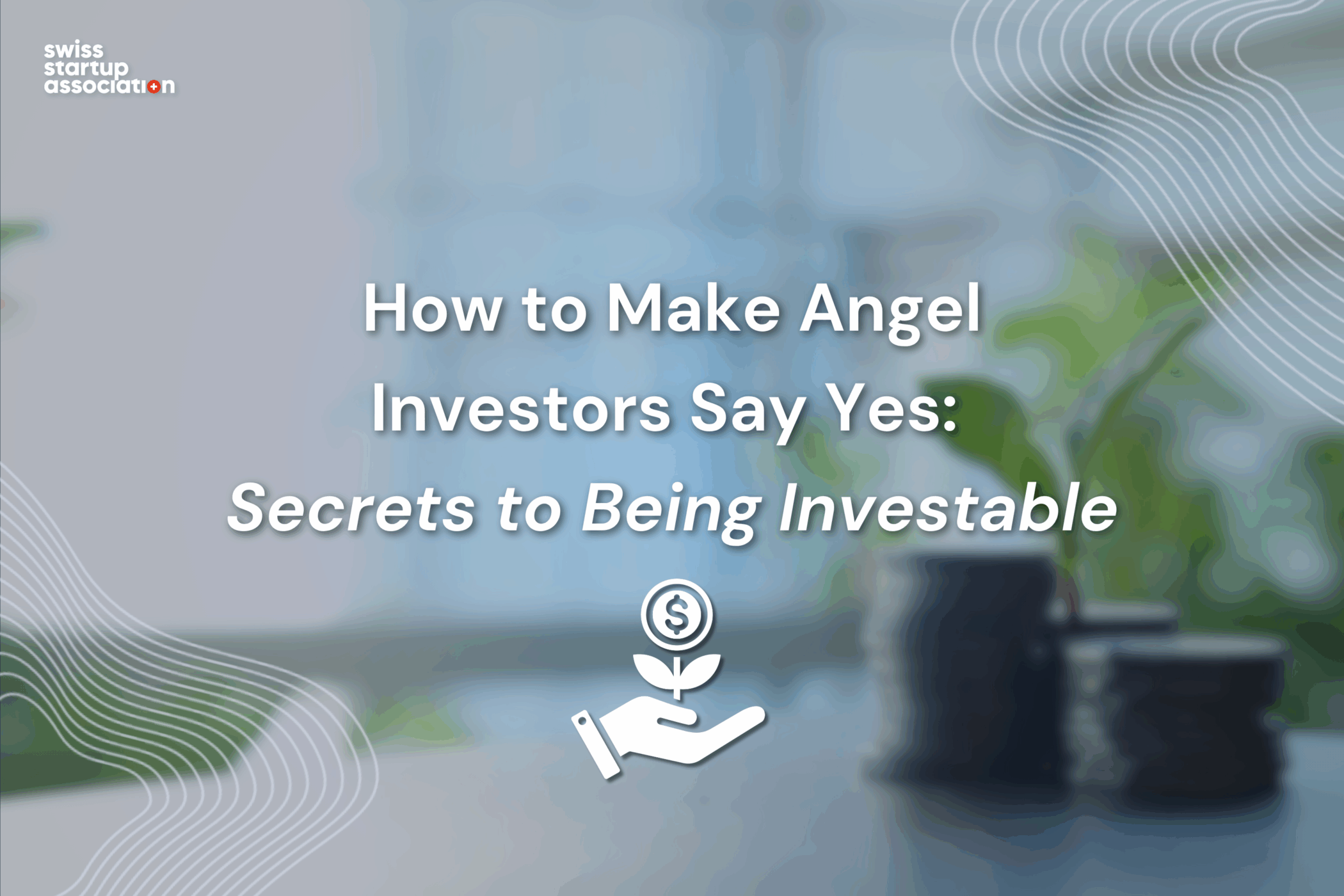
How to Make Angel Investors Say Yes: What Investors Look For in a Startup
What makes a tech startup fundable in Switzerland?
It’s easy to believe that having a great idea, a slick pitch deck, and a passionate founding team is enough to raise funding. But behind the scenes, experienced angel investors are looking for something more fundamental: real commitment, smart structure, and execution over potential.
At one of the Swiss Startup Association webinars, Thomas Dübendorfer – president of SICTIC, angel investor, and tech entrepreneur – shared an unfiltered perspective on what makes startups truly investable.
His message? Investors aren’t just betting on ideas. They’re backing founders who show the discipline and courage to go all in.
Commitment Before Capital
One of the most common founder statements Thomas hears is: “I’m ready to start, but I first need to raise half a million.” This, he says, is a red flag.
From an investor’s perspective, a founder who waits for funding to begin signals they’re not ready to take the leap. Real entrepreneurs take calculated risks early, developing prototypes, speaking to customers, assembling teams, without waiting for someone to hand them a salary.
Likewise, investors expect to see full-time commitment. If a founder is keeping a corporate job “just in case” or working on their startup one day a week, it’s difficult to justify an investment. A part-time founder rarely inspires a full-time team.
Aligned Team and Clear Structure
Another pitfall: unequal risk among co-founders. In some startups, one founder draws a market-rate salary while the other works for free. While this can work temporarily, it often breeds tension. Investors know that shared ownership must come with shared sacrifice. Otherwise, team dynamics unravel, just when stability is needed most.
Additionally, many early-stage startups are tripped up by messy ownership structures. Whether it’s too many family members on the cap table or advisors from academia holding large stakes, the message is the same: clean this up early.
Titles, too, matter. Giving out “Chief” roles too early, to co-founders or early employees who may not grow into the responsibility, can block growth later on. “It’s hard to bring in a real CMO,” Thomas notes, “when someone already has the title but none of the experience.”
Structure and Simplicity
Legal setup may feel like a detail, but it can make or break a deal. T. Dübendorfer warns against overly complex international holding structures early on, especially those designed for tax optimisation. When a startup has three entities across three jurisdictions, it slows down due diligence and raises questions about where the intellectual property and accountability actually sit.
His advice: start simple. “Most early-stage startups don’t pay taxes anyway,” he says. “Focus on traction first.”
Talk to Customers
Technical founders, especially in Switzerland, often fall in love with the product before validating the problem. But without speaking to real users, founders risk building something nobody wants. Teams should engage early, learn from potential customers, and avoid assumptions. “A perfect product solving an irrelevant problem is not a business.”
He adds that many investors are surprised when founders can’t explain the value their product brings to customers in business terms – not just features, but measurable outcomes.
The Power of Focus
A huge market, multiple use cases, and lots of potential might sound appealing. But trying to build everything at once? That’s a common mistake. Thomas prefers focused execution: choose one beachhead market, one use case, one key metric. Move fast, prove traction, and build from there. “Trying to do too much at once means slow progress, and that’s a killer for early-stage funding.”
What Investors Want to See
To wrap up, Thomas shared a simple framework he uses to assess startups:
- A real, technology-based innovation
- A scalable model, not a service disguised as a product
- Global potential (or at least beyond Switzerland)
- A committed, full-time founding team
- A clean cap table and transparent legal setup
- Traction or validation from customers
Miss one or two of these, and a startup may still have a chance. Miss most, and investors will pass.
Final Thought
Thomas summed up his advice in one sentence: “Commitment isn’t what you say – it’s what you do before anyone pays you to do it.”
Being investable isn’t about chasing trends or inflating your pitch. It’s about clarity, focus, and showing investors you’ve already started doing the work – before they write the check.
Catch the Full Webinar Replay! Visit our Education Session Library to watch the full session – free for all Swiss Startup Association members.
Not a member yet? Explore our membership benefits and join the community that empowers Swiss startups!
